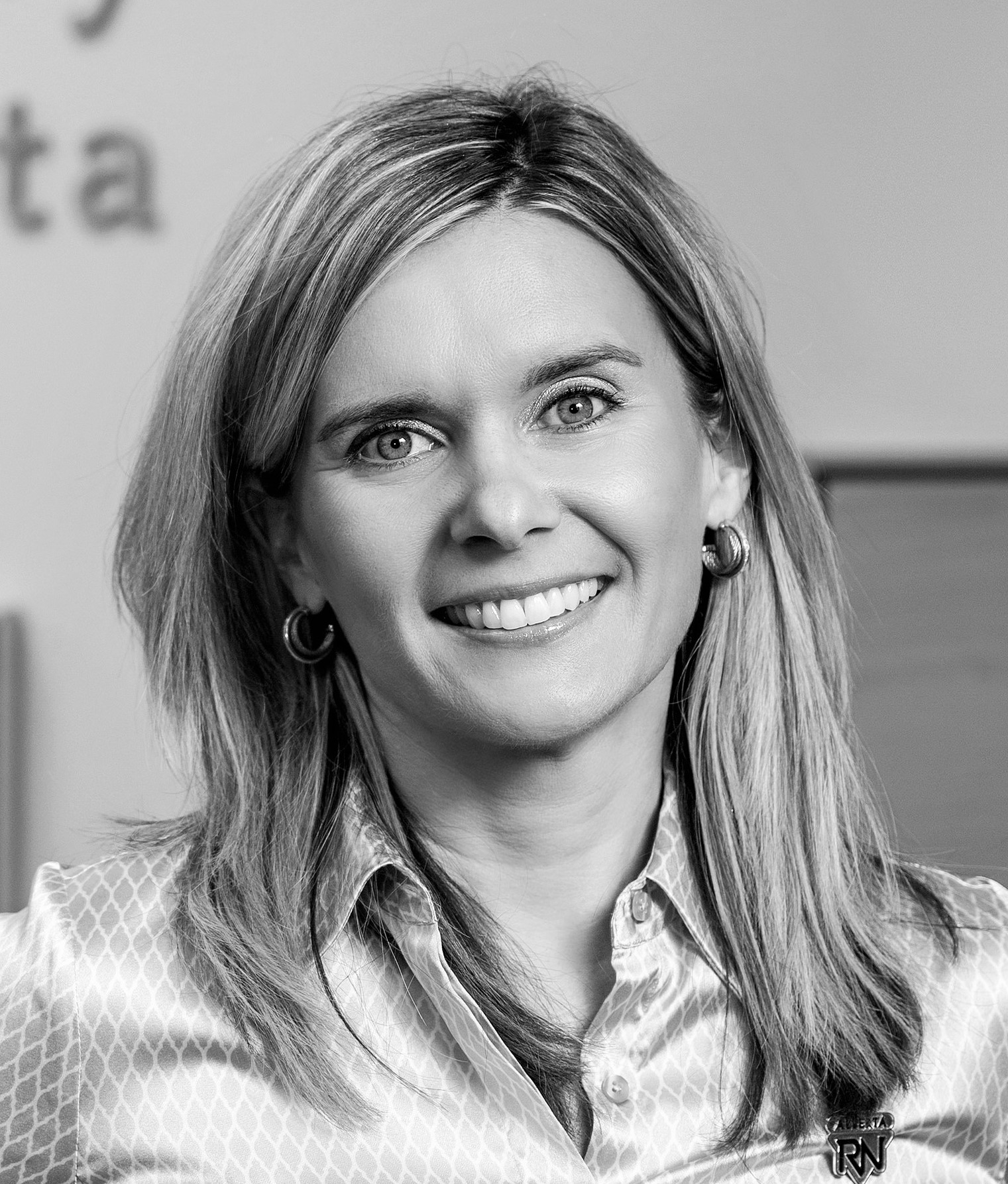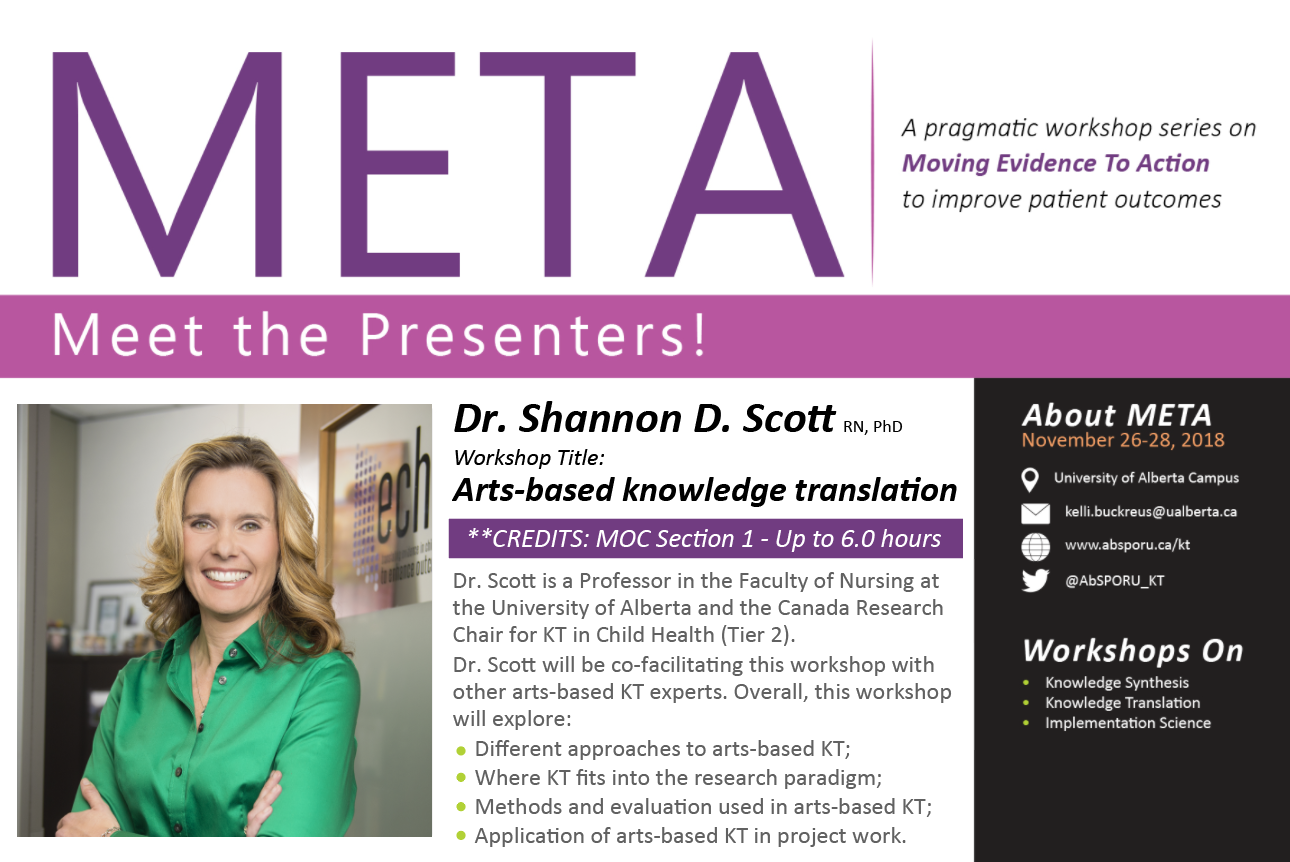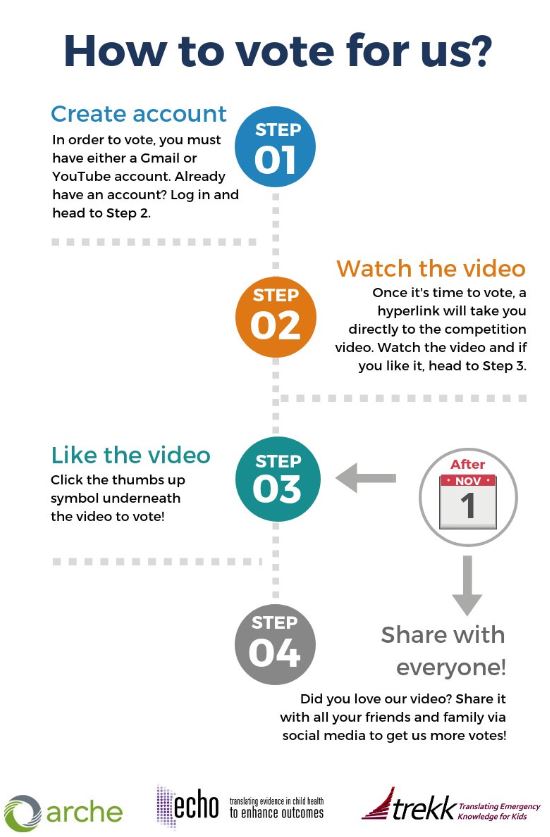Main Menu

U of A recognition for the value of KT work in moving research evidence into the hands of clinicians and the public.
Annually, the University of Alberta Alumni Awards recognizes the professional achievements, community service and innovation of graduates around the globe. This year the University included renowned health researchers, Dr. Shannon Scott and Dr. Lisa Hartling. Together, the two have developed innovative educational tools that combine art, story and novel technologies to provide easy access for families to the latest evidence and best practices in pediatric emergency care.
Our post today focuses on Dr. Shannon Scott, whose research program, ECHO (translating Evidence in Child Health to enhance Outcomes) focuses on knowledge translation (KT) in pediatric health care settings to improve the outcomes for children, their families and the health care system.
Dr. Scott has worked in the area of KT for the past 18 years, and draws on her prior clinical experience as a pediatric nurse and nurse educator. She observed a gap between the best available research evidence vs. what clinicians were actually doing in clinical practice. Her KT work aims to narrow this gap.
But clinicians are just one of the partners involved in health care. Because of her background as a pediatric nurse, Dr. Scott felt ideally suited to help empower parents with the best available evidence for making health-care decisions for their families.
By empowering families with evidence in this way, Dr. Scott says they can become meaningful partners and in some cases, families may even be able to help change the practices of clinicians by communicating expectations, such as asking a nurse to use numbing cream when a child needs to get a needle for example.
These insights come from 18 years of experience have informed Dr. Scott’s work in this field. Both Dr. Scott and Dr. Hartling’s work has advanced the use of arts and storytelling in KT research, from which they have produced innovative multi-media print and digital knowledge translation tools for clinicians and families, such as interactive eBooks, whiteboard videos, and infographics.
Dr. Scott describes: “Involving families in developing these tools, and in developing KT methodology, is another innovation we are pursuing.” In 2016, they established the Parents’ Pediatric Advisory Group, which has now grown into an Alberta-wide group. This approach emphasizes the value of patient experience as a source of evidence informing clinical practices.
As a researcher, Dr. Scott also feels the need for greater collaboration between researchers and the health care system in developing and implementing health services and programming. She recently attended KT Alberta’s “Advancing Implementation Science in Alberta” meeting, which explored the feasibility of creating a virtual implementation science (IS) lab in Alberta, to do just this: Bring researchers and health-system stakeholders together, for a two-way exchange of expertise. Where health-system stakeholders may benefit from the evidence and method rigor that research can contribute, health-system stakeholders can contribute practical and real-world expertise in return to inform researchers’ work.
Another critical aspect of the IS lab is that, because it is built on the KT Alberta Community of Practice(CoP), it is open, and so the public can be drawn into these processes of knowledge exchange.
If you want to conneKT with Dr. Scott, register for the Alberta SPOR SUPPORT Unit Learning Health System’s (formerly the Alberta SPOR SUPPORT Unit Knowledge Translation platform) META Workshops, where she will be presenting on her experiences utilizing Arts Based Knowledge Translation: https://secure.effreg.com/r/e/aoXJ85nh?0

If you want to find out more about Dr. Scott’s research program, visit: http://www.echokt.ca/
Also, please support their entry into this year’s CIHR IHDCYH: “What to do when your child has ear pain?”: bit.ly/2Pz1N0V
Follow the instructions below and support with your vote!

Let us know how you want to stay connected


 News + Events
News + Events

 Patient Partner Research Opportunities
Patient Partner Research Opportunities

 I agree to receive occasional emails from AbSPORU.
I agree to receive occasional emails from AbSPORU.University of Calgary Foothills Campus
3330 Hospital Dr NW
Calgary, AB T2N 4N1
University of Alberta North Campus
Edmonton Clinic Health Academy (ECHA)
11405 87 Ave NW
Edmonton, AB T6G 1C9
The Alberta SPOR SUPPORT Unit operates on and acknowledges the lands that are the traditional and ancestral territory of many peoples, presently subject to Treaties 6, 7, and 8. Namely: the Blackfoot Confederacy – Kainai, Piikani, and Siksika – the Cree, Dene, Saulteaux, Nakota Sioux, Stoney Nakoda, and the Tsuu T’ina Nation and the Métis People of Alberta. This includes the Métis Settlements and the Métis Nation of Alberta. We acknowledge the many First Nations, Métis and Inuit who have lived in and cared for these lands for generations. We make this acknowledgment as a reaffirmation of our shared commitment towards reconciliation, and as part of AbSPORU’s mandate towards fostering health system transformation.
© 2025 AbSPORU